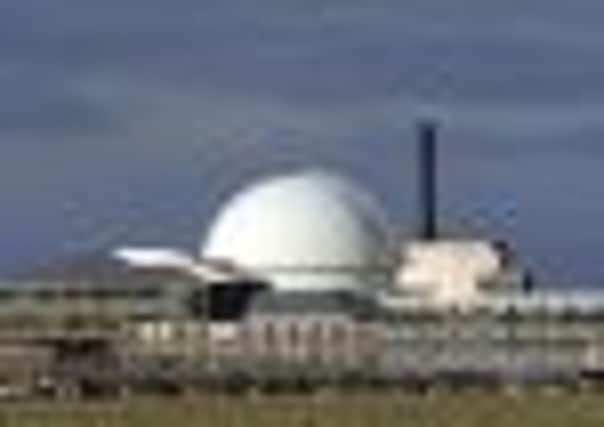First rail shipments of nuclear material from Dounreay to Sellafield take place


• Decision to transport material to Sellafield criticised but National Decommissioning Authority say dealing with fuel at Dounreay ‘more expensive’
• Around 90 journeys have been planned between the two facilities
• Shipments will cost an estimated £60 million
Advertisement
Hide AdAdvertisement
Hide AdThe first of 90 planned journeys from Dounreay in Caithness to Sellafield in Cumbria is understood to have taken place overnight on Monday into Tuesday.
A total of 44 tonnes of breeder material is being transported 400 miles for reprocessing into plutonium and uranium to be used as fuel at other nuclear plants.
While criticised by environmental groups, including Friends of the Earth, the National Decommissioning Authority said it was cheaper than dealing with it at Dounreay.
Nigel Lowe of the NDA said: “We selected rail because it is used now for moving fuel between different nuclear sites.
“It has actually been used since 1962 and during that time racked up nearly 12million miles of fuel movements without there ever being a radioactive leak.
“The safety record is truly exemplary. All the movements have to be cleared by independent regulators who require very strict contingency planning to be in place.”
He added: “We have the facilities at Sellafield to reprocess the material. We would have to build additional facilities at Dounreay, but seeingS we have capacity at Sellafield it would not be a good use of taxpayers’ money.”
The shipments are costing an estimated £60million. The material comprises cylinders of uranium metal, about 150mm long and 35mm in diameter known as “pucks”.
Advertisement
Hide AdAdvertisement
Hide AdFourteen pucks are stacked end-to-end in a stainless steel tube. The tubes were positioned vertically to form an outer ring around experimental Dounreay Fast Reactor (DFR).
Campaign group Nuclear Free Local Authorities (NFLA) and Shetland Islands Council had wanted it to be stored at the Caithness site.